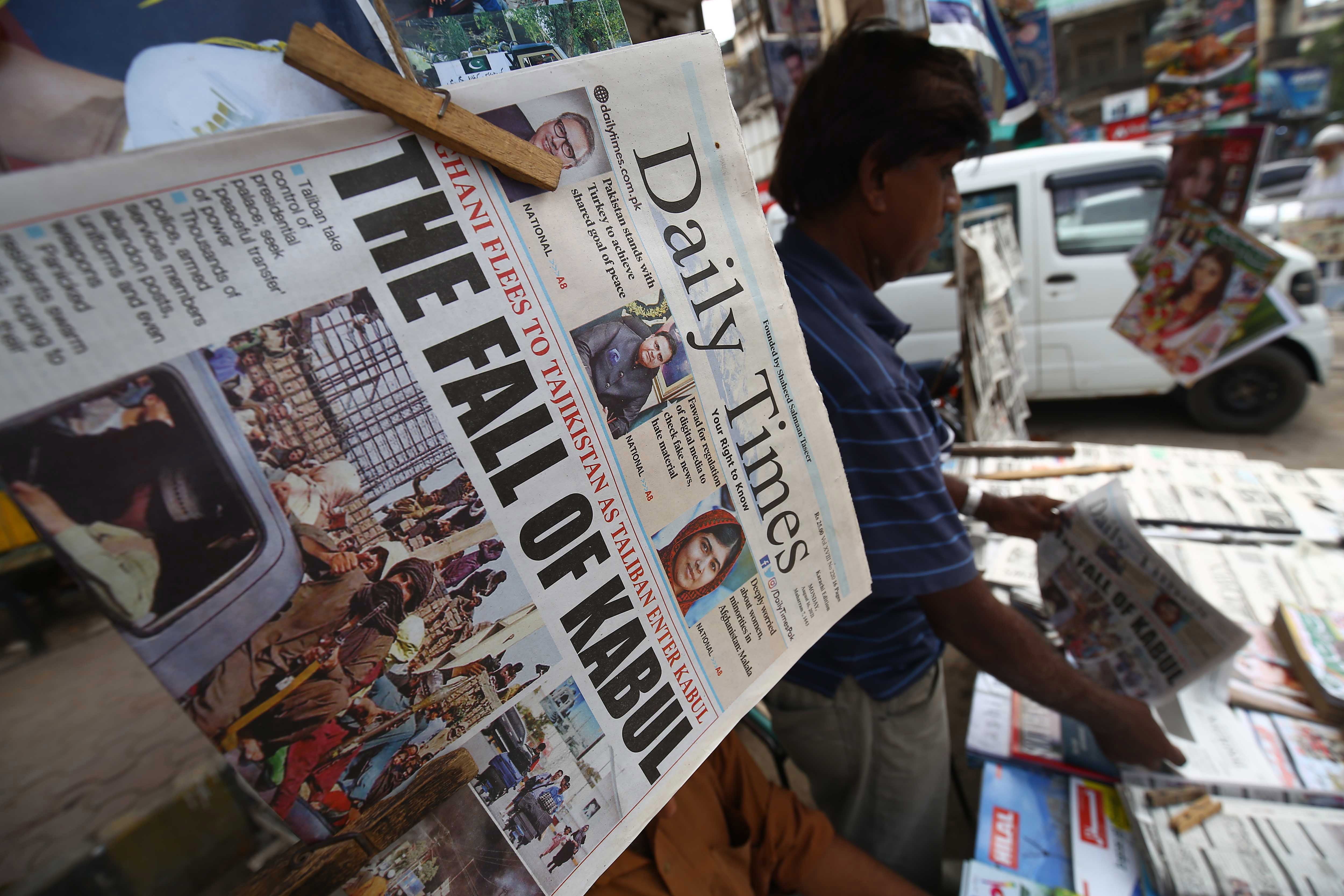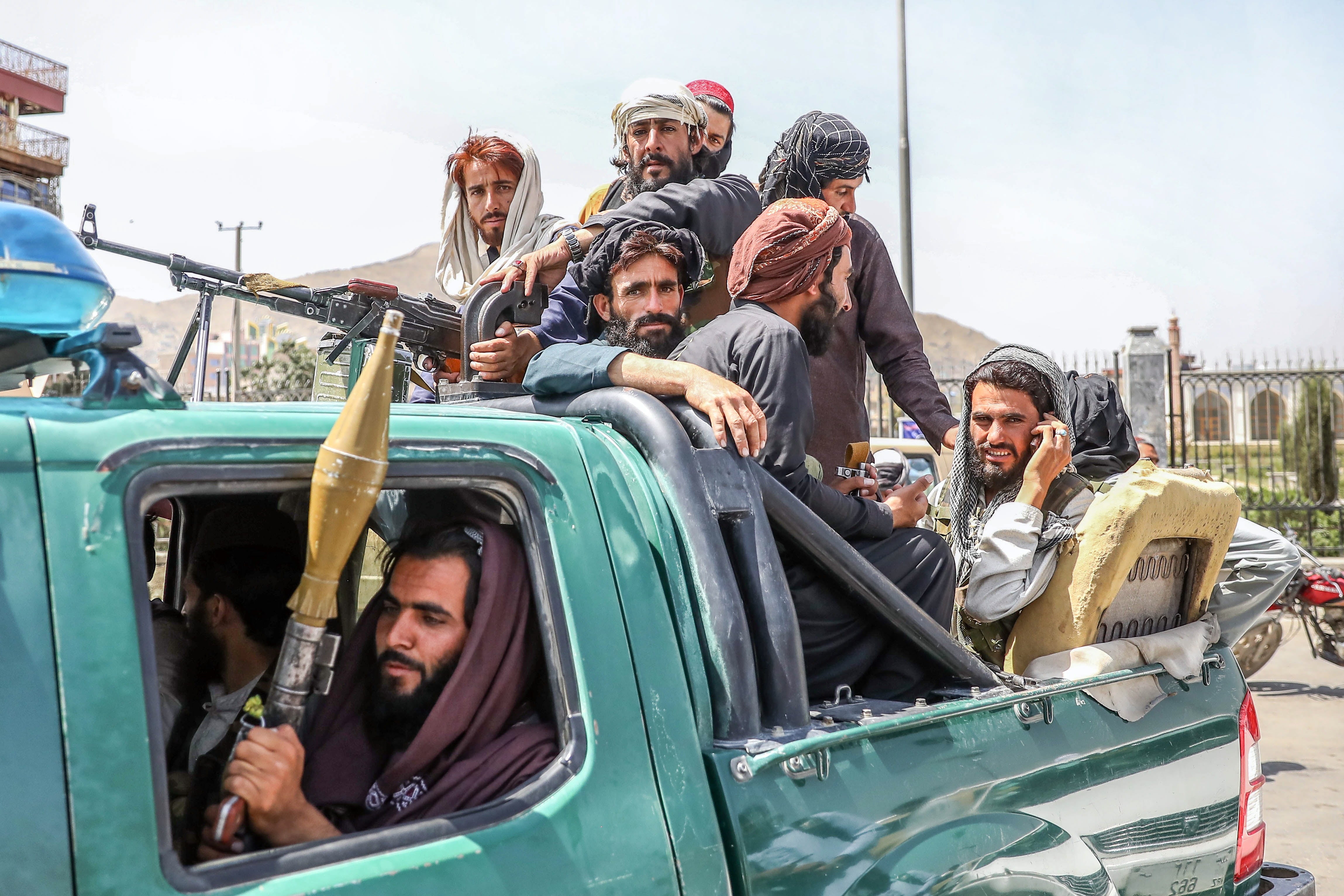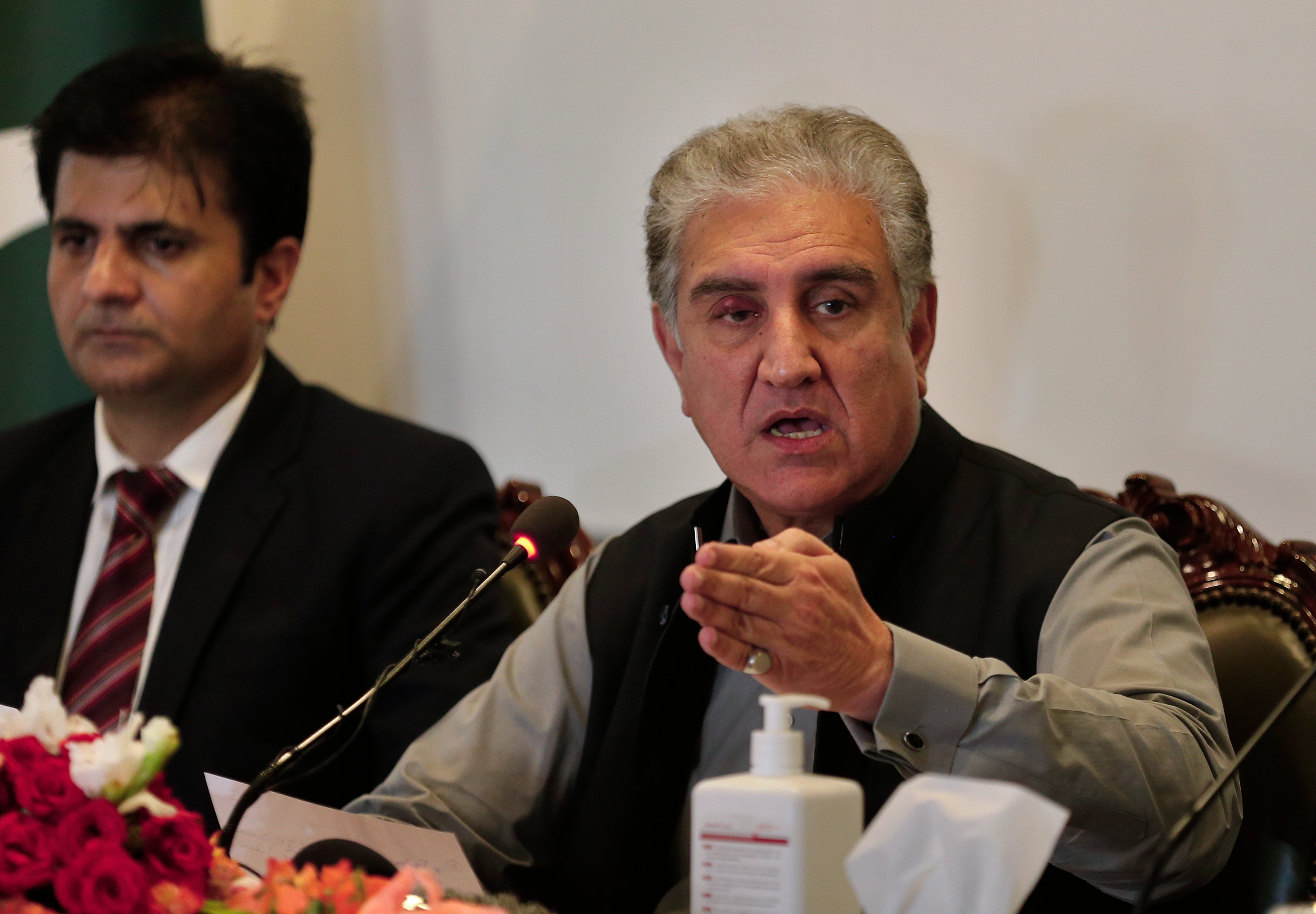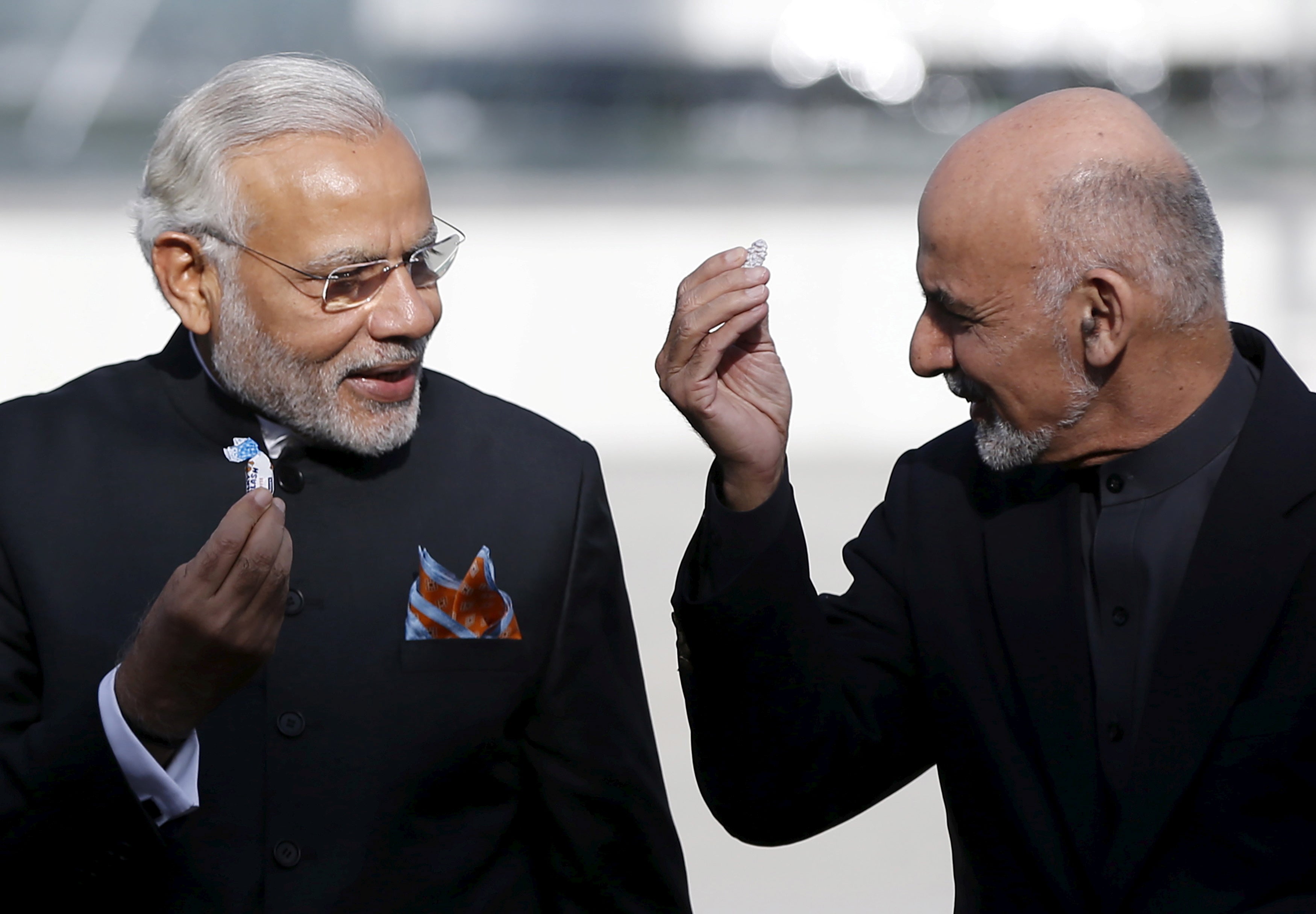Taliban’s swift takeover of Afghanistan is a game changer for global powers
The US and its allies are stunned by the rapidity of the Afghan collapse, and must reassess their security and strategic calculations as enemies and rivals cherish their defeat, writes Borzou Daragahi


The Taliban’s shocking, lightning-quick takeover of Afghanistan has upended world affairs and will reorder security concerns and strategic calculations in South Asia and the Middle East.
Allies are already lamenting the United States’ abandonment of yet another ally, after decades in which Washington intervened militarily, only to leave local allies to fend for themselves.
America’s rivals, however, won’t let the world forget it.
"The world is watching with horror the result of another of Washington’s historic experiments,” Russia’s foreign ministry spokeswoman Maria Zakharova said on Sunday.
By Monday, the Taliban had seized almost complete power in Afghanistan, holding all provinces except for those of the Shia Muslim-dominated Hazarajat in the mountainous centre of the country, and was preparing to declare its leader Mullah Abdul Ghani Baradar as president of a newly named Islamic Emirate.

Diplomatic voices around the world called for calm and the protection of civilian lives and property as countries struggled to get their personnel out of Kabul. Flights were suspended at the airport on Monday afternoon as desperate crowds ran after departing evacuation flights in a bid to flee.
In a statement released by the US State Department and signed by the United Kingdom, Ireland, Canada and Australia, officials called for allowing the “safe and orderly departure” of foreigners and any Afghans wishing to leave the country.
“Those in positions of power and authority across Afghanistan bear responsibility – and accountability – for the protection of human life and property, and for the immediate restoration of security and civil order,” it said.
Western and Nato nations, including the UK, have expended thousands of lives and invested huge financial and human resources in attempts to prop up successive Afghan governments, rebuilding the country’s roads, schools and hospitals, and bolstering its women and minorities.
They now look on, powerless, as most of their considerable efforts are washed away by the Taliban.
“From the beginning, the military intervention in Afghanistan suffered from cloudy objectives and finite resources,” the German newspaper Süddeutsche Zeitung said. “US President Biden is partly responsible for the chaotic end. And the German government should be ashamed of itself.”
France’s Le Monde said the Taliban’s takeover showed the weakness of the Afghan state, as well as years of glaring lies and wishful thinking by US, Nato and Afghan officials. “It was enough for US forces to withdraw from the country, between May and July, for [the Afghan government] to fall like a ripe fruit,” it said.
Nations such as Israel and Ukraine that count on western military support were spooked by how the US and others allowed the Kabul government to collapse. “The horrific events in Afghanistan must be a hard, scary lesson about changing interests and cold, hard calculations,” former Israeli diplomat Arthur Lenk wrote on Twitter.
Meanwhile, supporters of the many violent extremist Islamist groups across the world – including Somalia’s al-Shabab movement – are rejoicing, hailing the Taliban’s victory as a win for one of their own.
“After the Taliban victory in Afghanistan, Somalia and a return of the Islamic Courts under the authority of al-Shabab will be next, God willing,” wrote one Islamist militant on Twitter.
Supporters of Al Qaeda on social media shared images of the Taliban enforcers traipsing through the presidential palace in Kabul and declaring the “liberation” of Afghanistan.
"The victory of the Taliban is victory for all Muslims,” claimed Abu Mariya al-Qahtani, a member of the Syrian Islamist faction Hayat Tahrir al-Sham.
Qatar, which has served as an interlocutor for talks between the world and the Taliban and has hosted the leadership of the group for years, will see its diplomatic importance rise, perhaps at the expense of Gulf rivals such as the United Arab Emirates.
But Pakistan, long the primary patron of the fundamentalist Sunni Muslim movement, has maintained the closest and deepest ties to the Taliban’s leadership and will likely be the greatest regional beneficiary of its victory. It appeared ready to confer legitimacy onto Baradar’s regime.
"When the time comes, Pakistan will recognise the Taliban government in line with international consensus, ground realities, as well as Pakistan’s national interests,” Pakistan’s foreign minister Shah Mahmood Qureshi, said.

Iran, which nearly came to war with the previous incarnation of the Taliban in the 1990s, has developed strong ties with the Islamist militants in recent years. As the Taliban closed in on Kabul over the past week, authorities in Tehran reportedly ordered Iranian media to avoid using the words “brutality, crime, atrocity, and the like” when referring to the Taliban, which it has reportedly supplied with arms and safe havens even as it has supported the government in Kabul.
“Iran stands ready to continue its peacemaking efforts,” Iran’s soon-departing foreign minister Mohammad Javad Zarif wrote in a tweet.
China, which shares a short border with Afghanistan, has also voiced a willingness to establish relations with the Taliban, which it worries could harbour pan-Turkic Islamist movements that threaten its far west.
India, Pakistan’s fiercest rival, will be a loser of the Taliban’s victory. It is the regional power with the weakest ties to the Taliban, and had strongly supported the collapsed government in Kabul.

But both Pakistan and Iran are also bracing for a potential new surge of refugees flooding across their borders to escape the Taliban’s wrath. Millions of Afghans have already settled in both countries following waves of migration from their war-torn country that began in the 1980s. Iran has already begun establishing camps in three provinces to house Afghan refugees crossing the arid 572-mile border.
Turkey, too, is bracing for a fresh flow of Afghan migrants, whose arrivals have been picking up. Up to 500 Turkish soldiers are reportedly positioned at the airport in Kabul as part of an emerging deal to protect the facility. However, that deal is now in doubt because of the Taliban’s rapid takeover.
Join our commenting forum
Join thought-provoking conversations, follow other Independent readers and see their replies
Comments
Bookmark popover
Removed from bookmarks